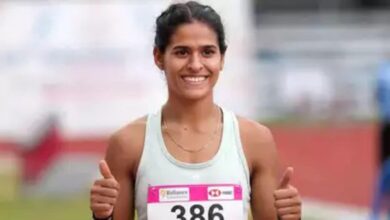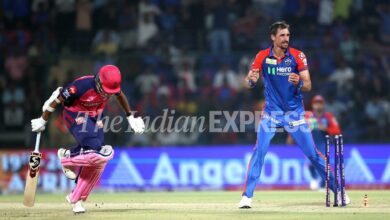National-level athlete working through Delhi’s winter nights in cold storage, loading milk packets at dairy

It’s no secret that Delhi winters can be a little harsh but Rahul, a 25-year-old long and middle-dance runner, feels the sting a lot more than most. The three-time Delhi state medall, who lost his father when he was just four, has been working night shifts at a milk loading facility in west Delhi since he was 14. His job profile: loading milk packets waiting in the giant cold storage facility into trucks from 10 pm to 6 am.
“The conditions in the storage facility are unforgiving. It’s like walking into an open freezer. My hands and feet go numb but I have little choice,” says Rahul, who was the U-20 bronze medall in the 2017 cross-country nationals.
At five-feet tall Rahul almost disappears behind stacked crates that he pushes out on a cart to the trucks at lightning pace. The winters rob him of the brief respite he has in the time between leaving the storage and reaching the trucks.
“The conditions in the storage facility are unforgiving. It’s like walking into an open freezer. My hands and feet go numb but I have little choice,” Rahul, U-20 bronze medall in the 2017 cross-country nationals.

Read more: https://t.co/0unzEvIjc9 pic.twitter.com/NMf973uSIY
— Express Sports (@IExpressSports) February 3, 2023
It is not only back-breaking work but a job fraught with chances of getting injured. “If you lose your attention for even a second you might get hit a metal cart. Once I slipped and the loaded cart fell on me and I lost consciousness,” says Rahul pointing at the stitches under his eye.
Rahul came to the national capital from Shikarpur near Bulandshahr in Uttar Pradesh along with his elder brother, who now works as a delivery agent in a food app company. Till when he was just around 13, he stayed with his brother for a couple of years but after a point, his sibling made it clear that he was not welcome anymore. “My brother was married and I was a burden to him. He told me he could not support me for long,” recalls Rahul.
Rahul came to the national capital from Shikarpur near Bulandshahr in Uttar Pradesh when he was about 10.
Living on langar
His brother’s constant taunts hurt Rahul, just 13 then, so much that he left their house with a school backpack and no money. “I did not even have money to buy a bus ticket so I hid behind people and somehow managed to land in Bangla Sahib Gurudwara,” he says. The Gurudwara was his home for the next eight months where he survived on langar (free community meals). Rahul was already a proficient cook so he would do seva (volunteering work) at Bangla Sahib’s massive kitchen facilities that feeds over 40,000 people each day.
Rahul continued his education at the government school even while he was staying at the Gurudwara. “I told a friend in school about my condition and his father worked at the milk facility. That’s how I landed my contractual job when I was just 14,” says Rahul. Rahul is paid just over Rs 500 a day for his 8-hour laborious work. “You are paid only on days you work. Now a new contractor has come who gives us work on alternate days,” says Rahul.
His tryst with athletics began a little late. His landlord’s son was training for police physical test exams and asked young Rahul if he would like to accompany him. But there was a problem, he didn’t have running shoes. He somehow managed enough to get his first pair of canvas shoes and started training with his landlord’s son who eventually did not clear the exams. But Rahul kept going and bagged his first state medal in 2016 – an U20 bronze in 10kms.
His sporting achievements also earned him a place in the prestigious Ramjas College of Delhi University. But Rahul couldn’t manage the fees and had to drop out in the first year of his BA course. “Fee was the main issue and then I couldn’t stay up during the classes since I was working all night. I reached home at 7 after work and the classes began at eight,” he says.
Rahul still trains at the Jawaharlal Nehru Stadium hoping for another break but the night work, he says, has started taking a toll on his body. “I desperately need a day job that will allow me to focus on my practice. Since I work all night my body doesn’t respond well to training during the day. I need rest to recover,” he says.
Rahul’s tiny single-room rented house doesn’t have shelves or trophy cabinets to display his medals and trophies. He pulls out a huge rusted metal trunk where he stores his laurels. “This is the fruit of my labour. This is all I have,” he says.





